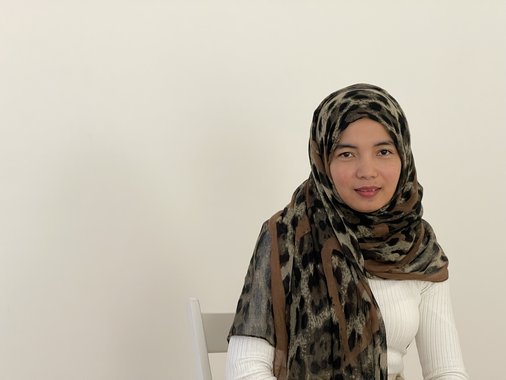
Two Trust for London grantees, Sound Delivery Media and the Voice of Domestic Workers, have joined forces to develop a Spokesperson Network for migrant domestic workers. The training programme, Future Voices, aims to equip a new network of twelve Migrant Domestic Workers with the skills and confidence to share their experiences, have their expertise heard more widely and ultimately drive public awareness and policy change. Here, Future Voices member Saharah Mamatas shares her experience of exploitation as a domestic worker on the Anti-Slavery Day 2022.
I was still a child when I started helping my parents with my 10 siblings. My father was a worker on someone's farm while my mother was a housekeeper.
Being the eldest daughter in my family, I always witnessed my small siblings watching the other kids eating while they were starving. This scenario broke my heart and I couldn’t bear watching it. I felt I needed to do something for them. And from that young age I realised early on how hard it is to earn a living. Growing up and living in extreme poverty.
In March 2011, due to financial difficulties, I had to stop my studies temporarily and work as a sales lady in a grocery store. However, my desire was always to go back to school. I decided to try my luck on a government scholarship examination, which I passed. I studied for a Bachelor's degree and finally, in April 2015, I graduated.
Having earned my degree, I thought life would be easier. Reality, however, was different. I got a job in our town but my salary was not enough to support myself nor my family. I went abroad and worked as a domestic worker, as the processing of my documents was free.
I flew to Saudi Arabia in 2015. My excitement towards working for a prince died out soon enough. I worked for two years and nine months, working almost 24 hours every day with no days off, no time for myself, not enough food and time to eat, and no proper sleep. As a result of this everyday routine I became underweight and pale. Normally I finished working early in the morning and would sleep wearing my uniform so that I could be available anytime they called. I had to wear my uniform every time I went outside the house with the driver. I was mentally abused, at times shouted at, and threatened. I did not receive my salary for four months and I was made to serve other people who are not covered by my contract. I also exceeded my original contract by nine months and yet, my employer wouldn’t let me go home.
In July 2018, this Royal family came to London and brought me with them without my knowing. I was only allowed to hold my passport when we were in the airport.
I came to the United Kingdom and I knew nothing about my employment and rights here. My situation here became worse. I was serving eight adults and one baby. I couldn’t stand the starvation anymore, the nonstop hard work, and mental abuse. So I decided to escape.
I met Kalayaan, a charity organisation in London who assisted me, and The Voice of Domestic Workers (VODW), the self-help grass-roots organisation who clothed and sheltered me.
I enjoyed being with my fellow domestic workers through the Voice of Domestic Workers. When I was with them I didn’t feel alone. We shared similar experiences and situations. It was easy for us to comfort each other because we understood how each other felt. They’ve become a part of my family.
My hope now is that through the National Referral Mechanism (NRM), a framework for identifying potential victims of trafficking, I can get a positive conclusive ground decision which recognises me as a victim of human trafficking. This protection is temporary and I don’t know when the conclusive decision will be given. If the decision is positive this will grant me a visa to work here for two years. This is not adequate time to rebuild my life because after these two years the visa is non-renewable so at the end of this visa, I will be undocumented and be forced to go home. All I want is to work so I can continue to support my family.
I want to be in good health and have a normal life so I can continue to work and support my family so they won’t experience any hardship. I wish the UK Government would grant migrant domestic workers, like me, our rights and allow us to renew our visa so that we can have the option to choose a job with decent work conditions. All I want is to be able to work with dignity and see my family who I have been fighting to support for many years.

About the author
Saharah is 31 years old and was born in the Philippines. Growing up in a remote area and living in poverty led her to seek work as a domestic worker overseas in order to support her family. Having faced exploitation and abuse in Saudi Arabia she was brought to London without her knowledge. She managed to escape from her employer and was supported by two charities Kalayaan and The Voice of Domestic Workers. She is now part of the Future Voices, a training programme led by The Voice of Domestic Workers in partnership with charity Sounddelivery Media which develops the skills and advocacy of migrant domestic workers in order to be an effective advocate for their rights. She is currently waiting for the NRM to make a final decision on her legal status the UK. She has been waiting for four years.